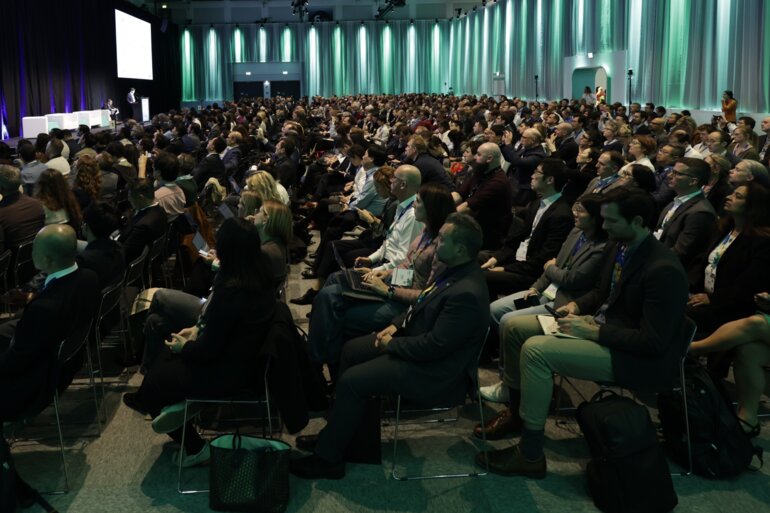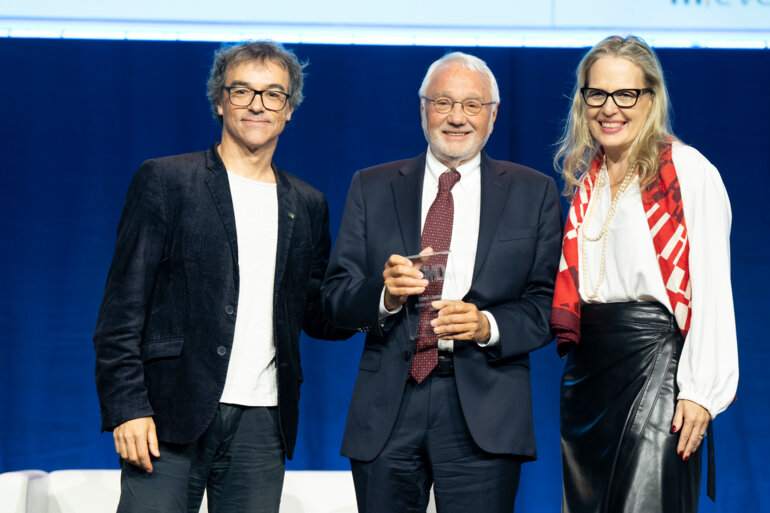In the IND227 trial, more pronounced benefits of the immunotherapy were observed in patients with non-epithelioid histology and regardless of PD-L1 status
Adding pembrolizumab to standard platinum–pemetrexed chemotherapy shows to be superior to chemotherapy only in terms of overall survival (OS) in previously untreated patients with advanced pleural mesothelioma, as reported in a recently published study (Lancet. 2023 Nov 3:S0140-6736(23)01613-6).
The open-label, international, randomised phase 3 IND227 trial involved 440 patients at 51 hospitals in Canada, Italy, and France, randomly assigning them to chemotherapy alone (n=218) or chemotherapy with pembrolizumab (n=222). All patients had advanced pleural mesothelioma unsuitable for surgery.
At final analysis, with a median follow-up of 16.2 months (IQR 8·3–27·8), median OS with pembrolizumab plus chemotherapy was 17.3 months (95% CI 14·4–21·3) compared to 16.1 months in the group treated with chemotherapy alone (hazard ratio for death 0·79; 95% CI 0·64–0·98). 3-year overall survival rate was 25% (95% CI 20–33%) with the combination therapy and 17% (13–24%) with chemotherapy alone.
"Study results show a numerical benefit in terms of survival when immunotherapy is added to chemotherapy, with a more pronounced favourable trend reported in patients with non-epithelioid subtype for whom chemotherapy alone is generally ineffective,” says Prof. Alessandra Curioni-Fontecedro, HFR Fribourg Cantonal Hospital, Switzerland. “However, despite the encouraging data, the hazard ratios for overall and progression-free survival did not reach the study preplanned HR of 0.70 for significance.”
Although OS was significantly longer with the combination therapy compared to chemotherapy alone, median survival improvement was only slightly longer than one month. “If this short benefit may be clinically relevant for patients with this disease is matter of debate and must be assessed against toxicity of the immunotherapy”, continues Curioni-Fontecedro. Most of the patients in both groups reported at least one adverse event, with grade 3 or 4 related events reported in 27% of patients in the pembrolizumab group and 15% of patients in the chemotherapy group. The most frequently occurring adverse events in both groups were fatigue and nausea. Overall, the pembrolizumab containing regimen was tolerable, despite an increase of toxic effects.
Malignant pleural mesothelioma is a rare and fatal disease with very little improvement in survival in recent years, mirroring very limited therapeutic advances. After a long-awaited time, improvement in patient survival was achieved with the regulatory approval in Europe and the USA of nivolumab plus ipilimumab for the first-line treatment of unresectable MPM, based on the results of the phase III CheckMate 743 trial (Lancet. 2021;397:375–386), becoming the standard of care in this setting. The benefit of immunotherapy in both the IND227 and CheckMate 743 trials was seen regardless of PD-L1 status, thus suggesting a further investigation of the prognostic and predictive role of PD-L1 expression in pleural mesothelioma.
“The IND227 trial represents a large academic effort underlining once more that collaboration is crucial to improve the outcome of patients with pleural mesothelioma for whom disease progression and second-line therapy still remain an unmet need,” concludes Curioni-Fontecedro.






